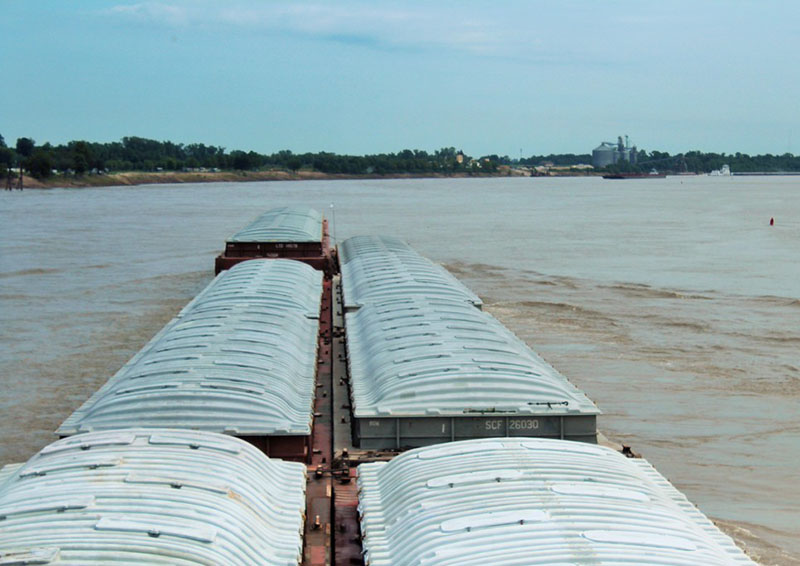A recent incident on the Illinois River focused attention on the dominant mind doctrine. Court decisions sometimes reference the doctrine in multivessel situations, where it can be difficult to put a finger on exactly who was ultimately responsible for a mishap. The doctrine essentially says that the vessel that is liable is the one whose people are in control of a given operation.
In the Illinois River case, a towing vessel attempted to navigate past the Marseilles Dam into the Marseilles Canal. Another towing vessel, together with two Corps of Engineers tugs, agreed to assist the vessel and its tow. Unfortunately, the tow broke apart somewhere around Mile 247, with seven barges either hitting the dam or sinking upstream.
After the incident, the owner of the well-meaning towing vessel filed a complaint in admiralty for exoneration from or limitation of liability. In plain English, a vessel owner attempts to legally get off the hook, or at least be on the hook for no more than the post-accident value of its vessel plus freights pending. We’ve seen limitation of liability arise in a number of high-profile cases, most recently in the sinking of the El Faro in October.
In the wake of the Illinois River accident, there were lawsuits for property damages. While it’s easy enough for lawyers and investigators to scrutinize logbooks with 20/20 hindsight from the comfort and safety of an office, it appears this situation was a brutish, white-knuckle ordeal when it unfolded.
In reviewing the radio transmissions, crew used resourcefulness and courage to try and keep a dire situation from turning hopeless: “We may need some help down here ... We got about 12,000 horse here, we’re barely holding 20-29 barges ... the situation is getting worse. They’re opening up more and more dam all the time.”
When the situation took a turn for the worse and barges hit the dam and sank, one wondered how a court would view this legal mess. Would it give the benefit of the doubt to the well-meaning vessel that came in to assist the first vessel?
The effort didn’t end well, resulting in claims against the owner of the well-meaning vessel that rendered assistance. The U.S. filed claims for damages to the dam and related structures. It based its claims on violations of the Rivers and Harbors Act, negligence and unseaworthiness under general maritime law, and creation of a public nuisance.
The owner of the well-meaning vessel filed a motion for the court to rule in its favor on the claims it faced. The owners of the well-meaning vessel argued that their vessel fulfilled its duties as an assist boat and should be exonerated from liability, or legally, to get off the hook. They argued that when damages involve a tow or entire flotilla, courts employ the dominant mind doctrine to place liability on the tug and absolve the tow from liability. In instances where multiple tugs are involved, courts examine “whose people are actually in control of the operation” to determine dominant mind status.
When a helper boat merely furnishes power under orders from the primary boat without any negligence on its part, it should be exonerated from all liability for damages to the tow. However, the assist vessel must be free of negligence to be absolved from liability.
The U.S. argued that the assisting vessel did more than simply provide passive assistance. Its actions included joining the troubled vessel at Ballards Island, connecting the two tows, overseeing tree-wiring and other rigging operations, speaking with the management of the two companies, offering suggestions to the captain, configuring assist boats for transit, and instructing assist boats during transit.
The court ruled against the owners of the assistance vessel on its negligence, public nuisance, and Rivers and Harbors Act claims, but in their favor in the unseaworthiness claims. In multivessel mishaps, courts can examine things closely to decide if a vessel’s actions placed it in control of a given situation more than the other vessels.




